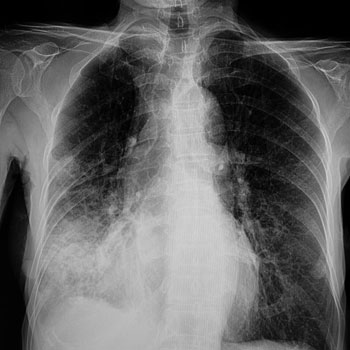New UTI treatment, AI sepsis risk calculator approved
This column reviews recent recalls, alerts, and approvals.
Recalls and warnings
A class I recall of HeartMate II and HeartMate 3 left ventricular assist system (LVAS) by Abbott/Thoratec Corp due to long-term buildup causing an obstruction. Use of an affected LVAS may cause serious adverse health consequences and in worst cases could result in death. There have been 273 reported injuries and 14 reports of death associated with this issue.
A class I recall of Obsidio Conformable Embolic, a premixed embolic agent, by Boston Scientific due to increased bowel ischemia risk when used for lower gastrointestinal (GI) bleeding. The recall is a correction, not a product removal. An investigation determined that delivery of Obsidio Embolic using the aliquot technique, a commonly used delivery method in embolization procedures, for lower GI bleeding embolization poses a high risk of bowel ischemia. Eleven incidents, seven injuries, and two deaths related to this issue have been reported.
A class I recall of Nimbus and Nimbus II Infusion Pump Systems by InfuTronix, LLC, due to multiple potential failure modes that may include battery failure, upstream blockage, system errors, drug product leakage, high or low flow rate, or damaged housing. The devices will not be available or supported after June 20, 2024. There have been 3,698 complaints, six serious injuries, and one death related to this issue.
A class I recall of PneuPac ParaPAC Plus 300 and 310 ventilator kits by Smiths Medical ASD after receiving reports that the ventilator may intermittently provide continuous positive gas flow instead of the intended cycling like a human breath when it is switched to the "Ventilate" operating mode. The recall is a correction and not a product removal. Smiths Medical has reported 177 MDR events including eight reports of serious injury related to this issue. There are currently no reported deaths.
A class I recall of the SonarMed Airway monitoring system by SonarMed Inc. because of a software issue resulting in failure to detect a partial obstruction within 2.5-mm sensors and extending up to 3 mm distal to the sensor tip. The use of the affected syringe may cause serious adverse health consequences, including delays in treatment, accidental insertion into the bronchial tube, and hypoxia, among others. There have been no reported injuries or deaths. SonarMed Inc. also issued a class I recall of SonarMed Airway acoustic sensors. There has been one reported injury and no deaths associated with this issue.
A class I recall of Ivenix Infusion System, Large-Volume Pump Software by Fresenius Kabi. Multiple software anomalies were occurring that have the potential to result in serious patient harm or death. Fresenius Kabi is releasing a new software version (5.9.1) for the Ivenix Large-Volume Pump. There have been no reports of injuries or deaths associated with this issue.
A class I recall of the Perseus A500 anesthesia workstation by Draeger, Inc., because of reports that the internal backup battery failed spontaneously while the system was being operated off the main power supply. The battery failure caused an unexpected shutdown without a low battery alarm while the device was running on battery power. If the device shuts down suddenly, patients may not receive enough ventilation or enough oxygen while an alternative form of ventilation is initiated. Four incidents have been reported related to this issue. There have been no reports of injuries or death.
A recall of Fendall 2000 nonsterile eyewash cartridge for the Fendall 2000 eyewash station by Honeywell Safety Products USA, Inc. because the supplier has been found to be noncompliant with current good manufacturing practice requirements. Use of or exposure to the eyewash without seeking medical attention afterwards could result in a range of ocular infections such as bacterial keratitis or endophthalmitis. Honeywell Safety Products USA, Inc., has not received any reports of adverse events related to this recall.
A recall of six lots of sapropterin dihydrochloride powder for oral solution 100 mg by Dr. Reddy's Laboratories Ltd. to the consumer level due to powder discoloration in some packets leading to decreased potency. Reduced efficacy of the product would result in elevated phenylalaninemia levels in patients. The company has not received any reports of adverse events related to this recall.
Miscellaneous
A safety communication to inform the public and health care professionals that the FDA has required and approved labeling changes to the U.S. prescribing information for all licensed BCMA-directed and CD19-directed genetically modified autologous CAR-T cell immunotherapies. The changes require manufacturers to update the boxed warning on the package insert to include new safety information on the serious risk of T cell malignancies and other serious outcomes, including hospitalization and death.
An announcement of several actions taken to better understand the safety and effectiveness of surgical mesh mini-slings to treat female stress urinary incontinence (SUI), including evaluating the results of long-term follow-up studies and completing an in-depth literature review to evaluate the performance of the mini-slings compared to the traditional mid-urethral slings. The results continue to support the FDA's conclusion that mini-slings have comparable clinical performance to traditional mid-urethral slings through at least 36 months for treating female SUI. The FDA's recommendations have not changed.
An update to the safety communication on the ongoing evaluation of quality and performance issues related to plastic syringes made in China and announcing expanded actions for Jiangsu Shenli Medical Production Co. Ltd. with an additional import alert for not meeting device quality system requirements, to prevent all plastic syringes by this manufacturer from entering the U.S.
Approvals
Ceftobiprole medocaril sodium for injection (Zevtera) for three indications: Staphylococcus aureus bloodstream infections, including right-sided infective endocarditis; acute bacterial skin and skin-structure infections; and community-acquired bacterial pneumonia. Side effects include anemia, nausea, hypokalemia, vomiting, diarrhea, increased levels of hepatic enzymes and bilirubin, increased blood creatinine levels, hypertension, leukopenia, fever, abdominal pain, fungal infection, headache, dyspnea, rash, dysgeusia, and dizziness. The drug comes with warnings about increased mortality risk if used in ventilator-associated bacterial pneumonia (an unapproved use), as well as hypersensitivity reactions, seizures and other central nervous system reactions, and Clostridioides difficile.
Naloxone hydrocholoride (Rezenopy), 10 mg, an intranasal spray indicated to treat opioid overdose.
Pivmecillinam (Pivya) tablets for the treatment of female adults with uncomplicated urinary tract infections caused by susceptible isolates of Escherichia coli, Proteus mirabilis, and Staphylococcus saprophyticus. In one trial, 62% of 137 subjects who received the treatment achieved the composite response compared to 10% of the 134 who received placebo. In a separate trial, 72% of 127 subjects who received pivmecillinam achieved composite response compared to 76% of 132 who received another oral antibacterial drug. In a third trial, 66% of 105 subjects who received pivmecillinam achieved composite response compared to 22% of the 119 who received ibuprofen. Common side effects include diarrhea and nausea.
Authorization for Prenosis, Inc.'s, sepsis ImmunoScore, an artificial intelligence/machine learning-based software that identifies patients at risk for having or developing sepsis. The device uses data from the patient's electronic health record in conjunction with other laboratory findings and clinical assessments to aid in the risk assessment for presence of or progression to sepsis within 24 hours of assessing a patient who has been admitted to the ED or hospital and meets certain other criteria. It should not be used as the sole basis to determine the presence of sepsis.
Accelerated approval of fam-trastuzumab deruxtecan-nxki (Enhertu) for adult patients with unresectable or metastatic HER2-positive (IHC3+) solid tumors who have received prior systemic treatment and have no satisfactory alternative treatment options. Efficacy was evaluated in 192 patients enrolled in one of three multicenter trials. Objective response rates were 51.4%, 52.9%, and 46.9% in each trial, respectively. Common adverse reactions included decreased white blood cell count, nausea, and decreased hemoglobin, among others. Prescribing information includes a boxed warning on the risk of interstitial lung disease and embryo-fetal toxicity.
Alectinib (Alecensa) for adjuvant treatment following tumor resection in patients with anaplastic lymphoma kinase-positive non-small-cell lung cancer, as detected by an FDA-approved test. Alectinib received an orphan drug designation. Common adverse reactions include hepatotoxicity, constipation, myalgia, COVID-19, fatigue, rash, and cough.
Nogapendekin alfa inbakicept-pmln (Anktiva) with Bacillus Calmette-Guérin (BCG) for adult patients with BCG-unresponsive non-muscle invasive bladder cancer with carcinoma in situ with or without papillary tumors. Efficacy was evaluated in a single-arm, multicenter trial of 77 patients who received nogapendekin alfa inbakicept-pmln induction via intravesical instillation with BCG followed by maintenance therapy for up to 37 months. The complete response (CR) rate was 62%. Fifty-eight percent of patients with CR had a duration of complete response (DOR) of at least 12 months and 40% had a DOR of at least 24 months. Common adverse reactions included increased creatinine, dysuria, hematuria, urinary frequency, micturition urgency, and urinary tract infection, among others.
Marketing authorization of the Rho, a software application that uses a machine learning algorithm to pre-screen patients 50 years of age and older who may have low bone mineral density using existing radiographs of the lumbar spine, thoracic spine, chest, pelvis, knee, or hand/wrist. Clinicians should follow recommended practices for bone health assessment and possible screening regardless of the Rho report.
Emergency use authorization for CorDx, Inc.'s, CorDx TyFast Flu A/B & COVID-19 at home multiplex rapid test and OSANG LLC's QuickFinder COVID-19/flu antigen self-test. Both products are single-use tests intended to detect and differentiate influenza A and B and SARS-CoV-2 in individuals with signs and symptoms of respiratory infection consistent with COVID-19 within the first days of symptom onset when tested at least twice over three days with at least 48 hours between tests.
First-time generic drug approvals
Bromfenac ophthalmic solution, 0.075%, for the treatment of postoperative inflammation and prevention of ocular pain in patients undergoing cataract surgery (Brand name: BromSite Ophthalmic Solution)
Cobicistat tablets, 150 mg, for the treatment of HIV-1 infection in adults and in pediatric patients (Brand name: Tybost tablets)
Hydromorphone hydrochloride injection USP, 0.2 mg/mL, 0.5 mg/0.5 mL, 1 mg/mL, 2 mg/mL single-dose prefilled syringes, for the management of pain severe enough to require an opioid analgesic and for which alternate treatments are inadequate (Brand name: Dilaudid hydrochloride injection)
Deflazacort tablets, 6 mg, 18 mg, 30 mg, and 36 mg, for the treatment of Duchenne muscular dystrophy in patients 5 years of age and older (Brand name: Emflaza tablets)
Ospemifene tablets, 60 mg, for the treatment of moderate to severe dyspareunia and moderate to severe vaginal dryness due to menopause (Brand name: Osphena tablets)
Nitroglycerin ointment USP, 0.4%, for the treatment of moderate to severe pain associated with chronic anal fissure (Brand name: Rectiv ointment)
Brimonidine tartrate ophthalmic solution, 0.025% over the counter, to relieve redness of the eye due to minor eye irritations (Brand name: Lumify ophthalmic solution)
Note: The FDA states that drugs are not always commercially available immediately after approval. n




